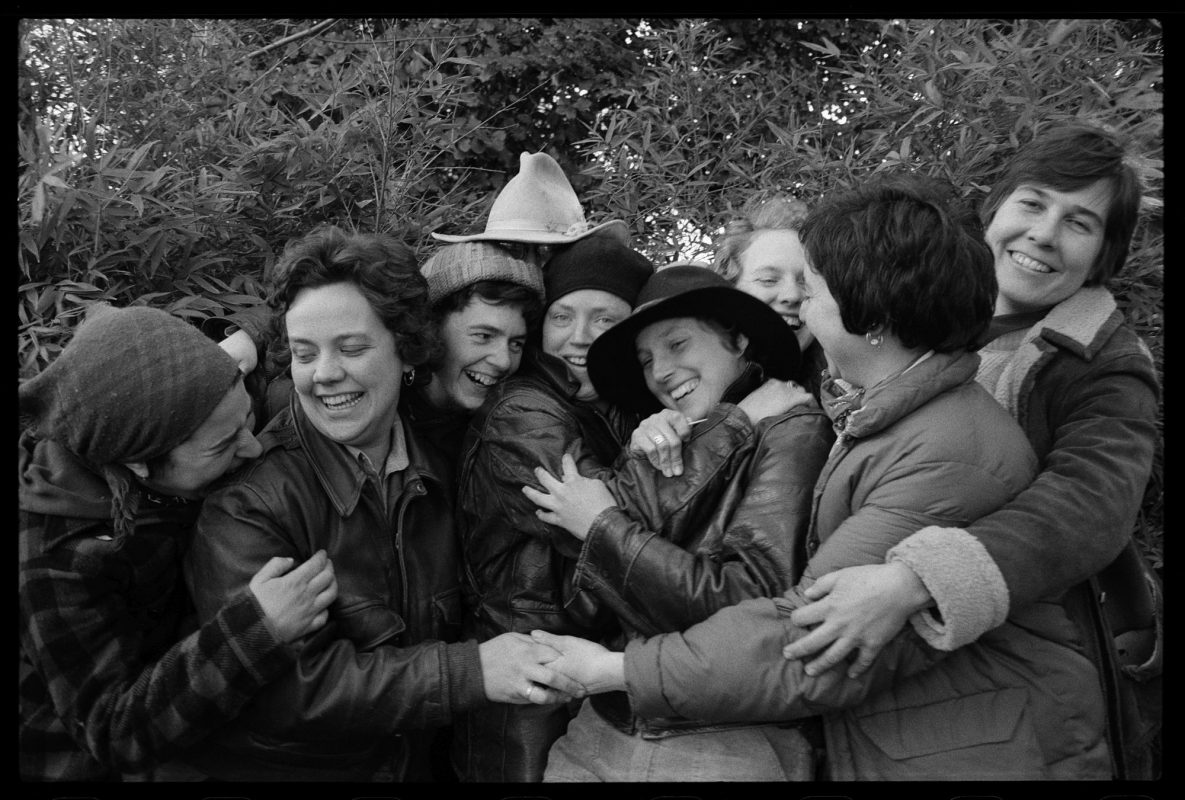
Meadow Muska American, born 1952 Tradeswomen: Get Serious!, 1976 Pigment inkjet print courtesy of the Artist L2019.197.22 © Meadow Muska

Share
An exhibition at the Minneapolis Institute of Art (MIA) is the first to present the work of documentary photographer Carolyn “Meadow” Muska (born 1952). Muska’s work celebrates everyday life within American lesbian communities in the 1970s and 1980s, a time of persistent legal and cultural prejudice against LGBTQ individuals in the United States.
After earning her BFA at Ohio University, she used photography to record her community of “beautiful, strong women, full of love and joy.” After losing her job as a photojournalist due to anti-LGBTQ employment practices, Muska retrained and became a master electrician. She later founded Minnesota Women in the Trades, a labor organization devoted to racial and gender equity. As part of Minnesota Women in the Trades she co-authored an equity-oriented guidebook with the Labor Education Service. The guidebook provided clear guidelines and information to women and people of color who sought to enter the trades.
Dr. Casey Riley, curator and head of the Department of Photography and New Media explained some of Muska’s motivation and practice.
One of the parts of Meadow’s story that I found compelling quite honestly was, the fact that she had not only gone into the
trades but was really a path breaker in many senses of the word. She used her experiences as a woman in the field to consider how she could open doorways for other women and people of color. I just think it says so much about her as a human being, let alone an artist, that, that was integral to her practice.
Riley explained that Muska applied her experience as a lesbian to make linkages with other historically marganilazed communities of the time and see the importance of solidarity.
“I think this is where intersectional feminism is such a powerful thing,” Riley said. “Meadow was part of all of these marches and these women’s collectives in 1960s and 70s and she saw the power of what it meant to organize and be banded together. She really applied those personal experiences to her professional life in a way that I think is really amazing and admirable.”
Riley grew up in a small town in Maine and, “my childhood best friend’s dad was the president of the AFL-CIO in Maine. So this project was personal to me too.”
Muska’s photography was revolutionary for its time. In 1970s America, being identified as a lesbian could cause a woman to lose her job, children, and housing. Because Muska’s photographs could have exposed her subjects to these risks, she developed her own film in a basement darkroom for decades.
The extraordinary photographic record she produced as a part of the “women’s land” movement in both Minnesota and Oregon, as well as her work as a labor and women’s rights activist, illuminates a new and vital chapter in American history.
Muska was born in St. Paul and raised in Roseville, Minnesota. She came out as a lesbian at age 20 and found support in feminist circles. Now retired, Muska donated her archive to the Sophia Smith Collection at Smith College in Northampton, Massachusetts.
“Strong Women, Full of Love” is on view August 17 through December 15, 2019, and showcases 30 black and white photographs, along with historic feminist publications.

